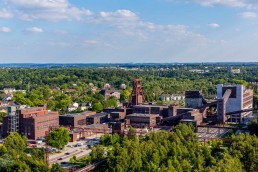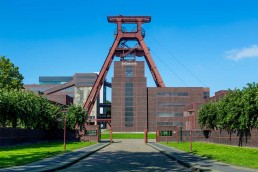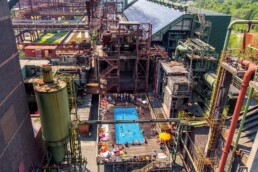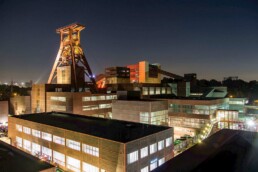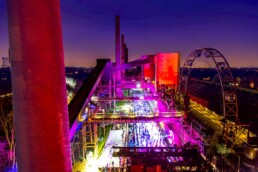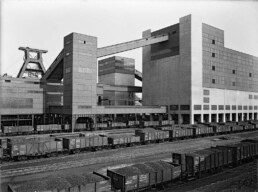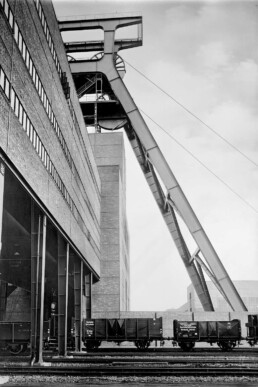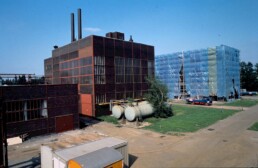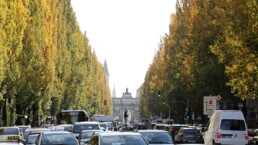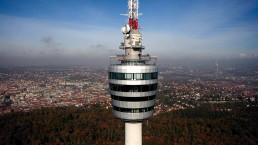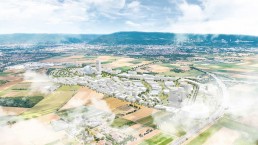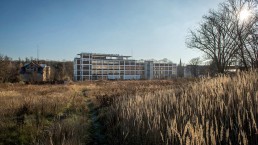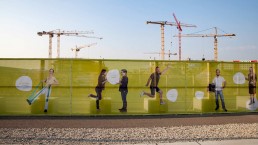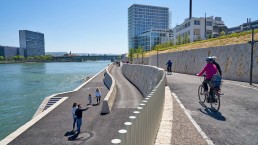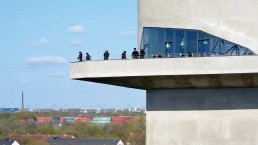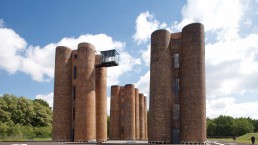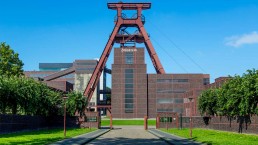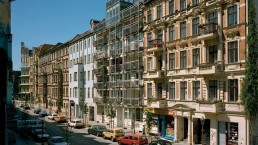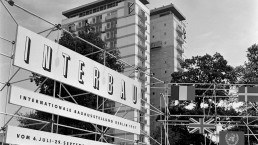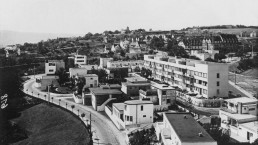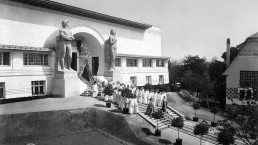Zollverein Coal Mine Complex, Essen
From Coal and Steel to Arts and Culture
Until the middle of the 20th century, the Zollverein coal mine in Essen was the most powerful cole mine in the world and the largest coking plant in Europe. Since the mine closed in 1986 and the coking plant closed in 1994, the originally preserved overground plants have symbolised the industrial architecture in the Ruhr area. After the era of coal and steel, the site was redesigned as a cultural and economic venue for the future during IBAIBA Internationale Bauausstellung Emscher Park, which provided the stimuli for this renewal.
The Zollverein Complex in Essen-Katernberg is a masterpiece of mining architecture. It was opened in 1932, and was one of the most modern coal mines at the time, designed by architecture firm Schupp & Kremmer in the Neue Sachlichkeit (New Objectivity) style. The mine was closed in 1986. After all industrial use stopped, the Zollverein was viewed as a structural emblem of the decline, and the responsible bodies considered demolition the logical option. Only the hard work by the State authorities prevented these plans and saved the plants and open spaces: Shaft XII was listed as a protected monument. The 100-hectare industrial complex Zeche Zollverein, with shaft systems XII and 1/2/8, as well as the coking plant, have been UNESCO World Cultural Heritage sites since 2001. After the project became part of IBA Emscher Park, the construction association Bauhütte Zollverein was founded in 1989. It developed an initial concept for preservation, refurbishment and repurposing of the existing buildings and managed the redevelopment.
Today, the industrial monument is a lively centre for culture, design and industrial history and home to two museums, the new Ruhr Museum and the Red Dot Design Museum. A wide range of exhibitions, concerts, theatre and performances, readings and festivals have turned the previously closed site into a vibrant public venue. Roughly 1.5 million guests from around the world visit the site each year. Many companies and institutions have opened premises here.
The Zollverein Foundation, established in 1998, is the successor of Bauhütte Zollverein and took on the responsibilities of the Entwicklungsgesellschaft Zollverein that had been commissioned to redevelop the site since 2001. It continues to drive local development with a series of new buildings and reconstructions.
AddressUNESCO World Cultural Heritage Zollverein:
Gelsenkirchener Str. 181, 45309 Essen
Coking plant:
Ahrendahls Wiese, 45141 EssenSources and further information:Internationale Bauausstellung Emscher Park (Hrsg.): Katalog der Projekte 1999. Gelsenkirchen 1999.
Fachgebiet Städtebau, Stadtgestaltung und Bauleitplanung, Fakultät Raumplanung (Hrsg.): Internationale Bauausstellung Emscher Park. Die Projekte 10 Jahre danach. Essen 2008.LinksStiftung Zollverein
